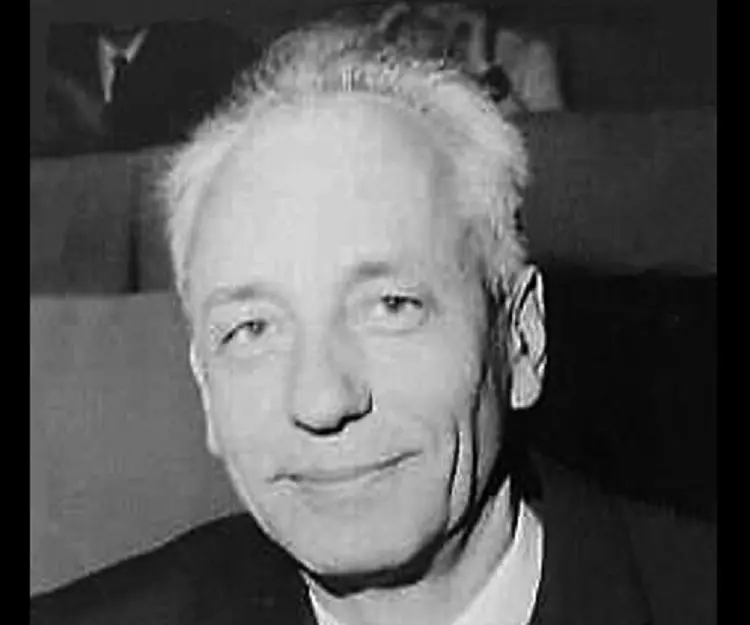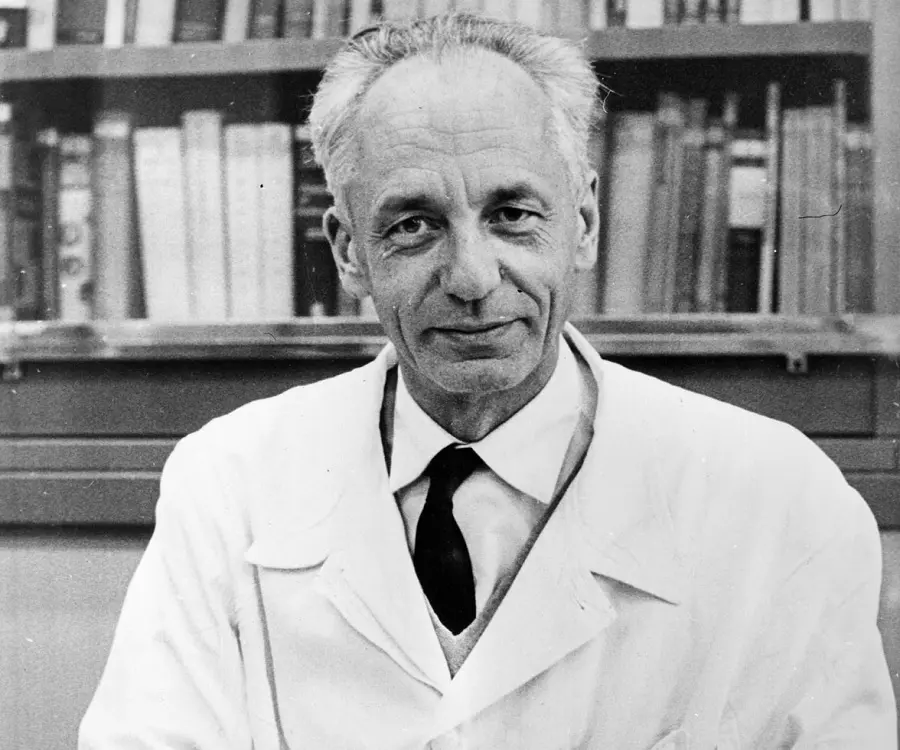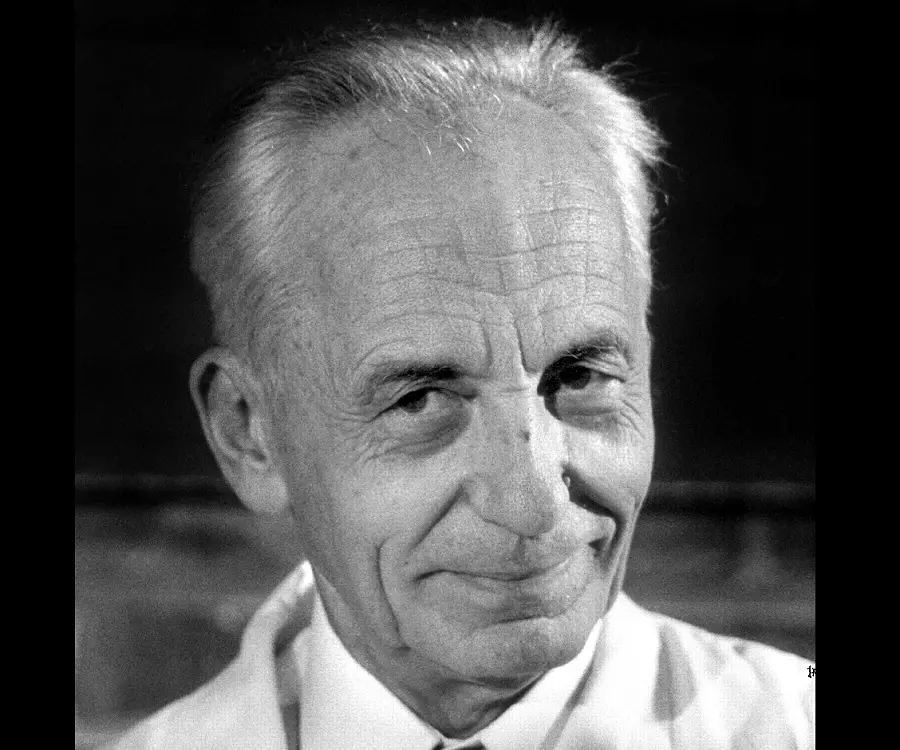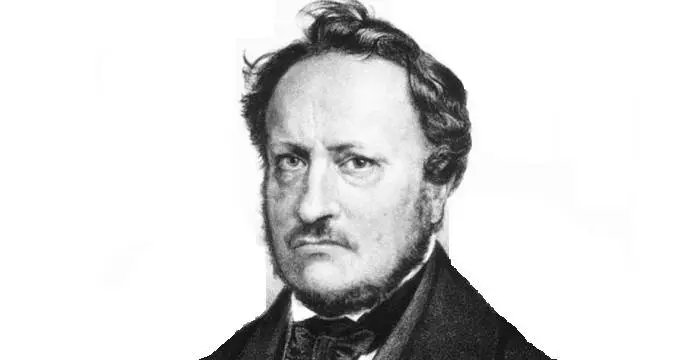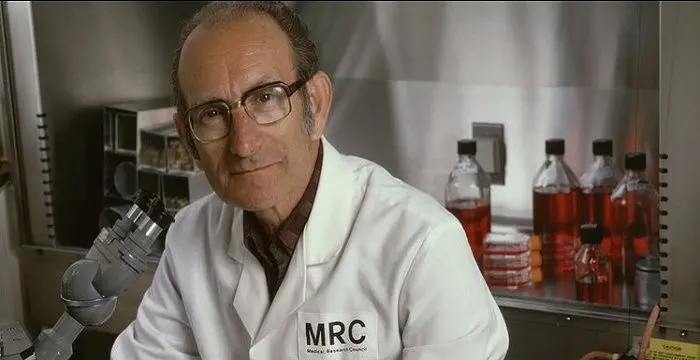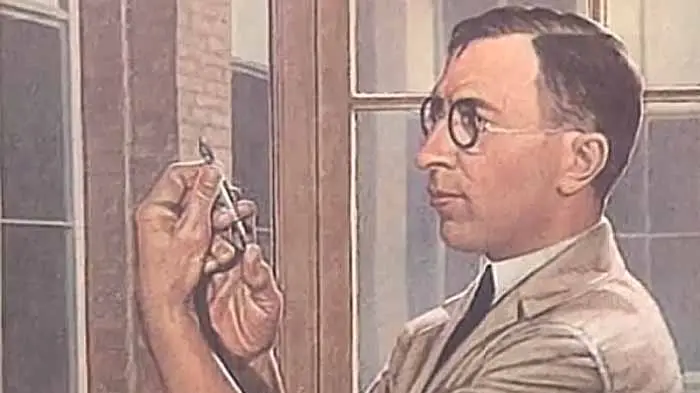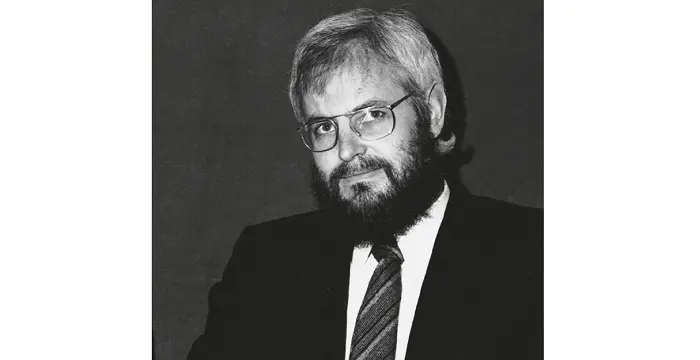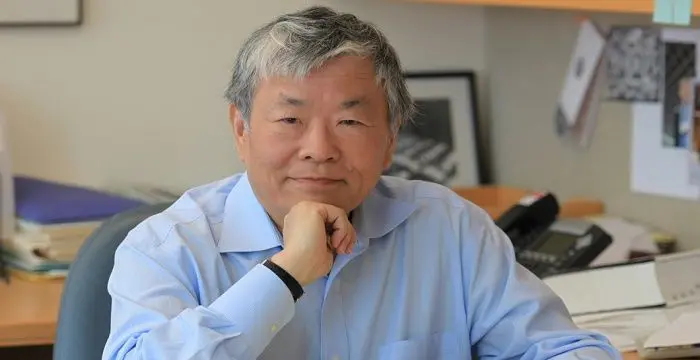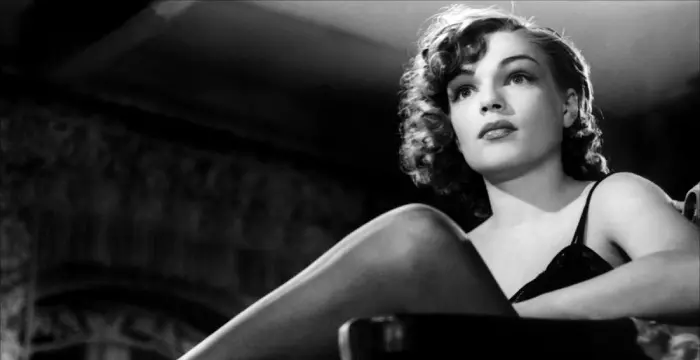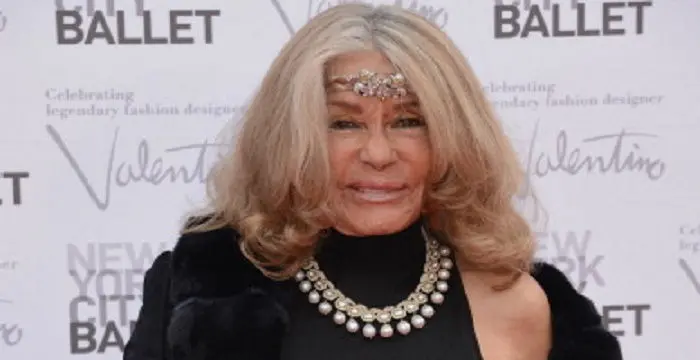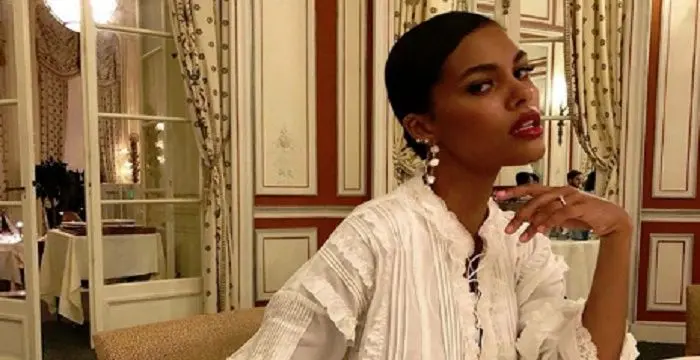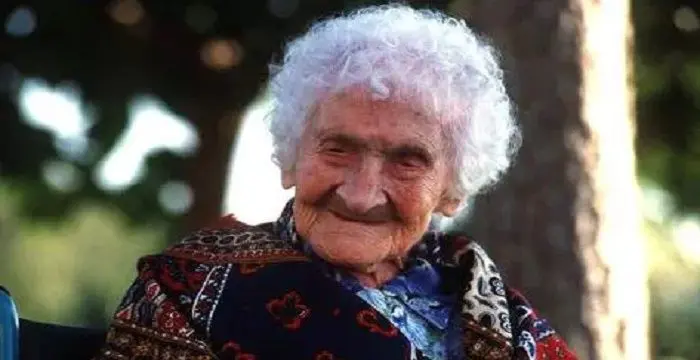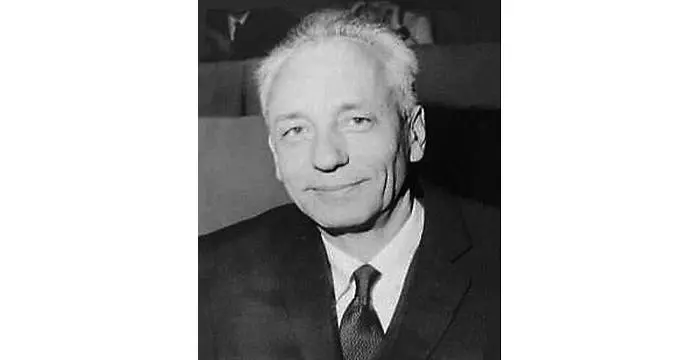
Jean Dausset - Immunologists, Career and Family
Jean Dausset's Personal Details
Jean-Baptiste-Gabriel-Joachim Dausset was a French immunologist who won the 1980 Nobel Prize for Physiology or Medicine
| Information | Detail |
|---|---|
| Birthday | October 19, 1916 |
| Died on | June 6, 2009 |
| Nationality | French |
| Famous | Scientists, Immunologists, Medical Scientists |
| Birth Place | Toulouse, France |
| Gender | Male |
| Sun Sign | Libra |
| Born in | Toulouse, France |
| Famous as | Immunologist |
| Died at Age | 92 |
// Famous Scientists
Juliane Koepcke
Juliane Koepcke is a German-Peruvian biologist, who was the lone survivor among the 92 passengers and crew of the ill-fated LANSA Flight 508 that crashed in the Peruvian rainforest on 24 December 1971. Know more about her life in this biography.
Henry Cavendish
Henry Cavendish was a theoretical chemist and physicist, renowned for discovery of hydrogen and calculation of the mass of earth. To know more about his childhood, profile, timeline and career read on
Konstantin Tsiolkovsky
Konstantin Tsiolkovsky was a Russian rocket scientist and a pioneer of astronautics. This biography provides detailed information about his childhood, family, personal life, career, achievements, etc.
Jean Dausset's photo
Who is Jean Dausset?
Jean-Baptiste-Gabriel-Joachim Dausset was a French immunologist, who, along with Baruj Benacerraf and George Davis Snell, jointly won the 1980 Nobel Prize for Physiology or Medicine. In his lifetime dedicated to research, his most significant contribution was the identification of human leukocyte antigens (HLA) and the genes that code for them. His research findings were considered to have had altered the existent understanding of human immune system. Jean Dausset pursued his studies in medicine from the University of Paris and served the French army during World War II, during when he was introduced to human blood transfusions. After the war, he began his career in research on exchange transfusion, understanding immune haemotology techniques and observing leuco-agglutination and thrombo-agglutination. His work was centered on the understanding the immunogenetics of blood cells. He was awarded the 1980 Nobel Prize for Physiology or Medicine for his independent discovery of ‘genetically determined structures on the cell surface that regulate immunological reactions’. With the prize money he founded the Centre D’eute du Polymorphisme Humain. Jean Dausset was a member of prestigious professional societies like the National Academy of Sciences, American Academy of Arts and Sciences and the Académie des Sciences de l'Institut de France.
// Famous Medical Scientists
Johannes Peter Müller
Johannes Peter Müller was a German physiologist and comparative anatomist. Check out this biography to know about his childhood, life, achievements, works & timeline.
Cesar Milstein
Cesar Milstein was an Argentinian biochemist who received the Nobel Prize for his discovery of monoclonal antibody. Explore this biography to get details about his life, career and scientific discoveries.
Frederick Banting
Frederick Banting was a Canadian medical scientist and physician who won the Nobel Prize for discovering insulin. Check out this biography to know about his childhood, family life, achievements and other facts related to his life.
Childhood & Early Life
Jean-Baptiste-Gabriel-Joachim Dausset was born on 19 October 1916 at Toulouse in France. His father, Henri Dausset, was a physician who served as a captain in the army and his mother’s name was Elizabeth Brullard Dausset.
He spent the early days of his childhood at Biarritz, France. When he was 11 years old, he along with his family sifted to Paris. He pursued his secondary school education from the Lycée Michelet and earned his baccalaureate in mathematics.
As per his father’s interest, he enrolled at the University of Paris to study medicine. He was preparing himself for an internship entrance exam when the World War II broke out. During the war, he was sent to serve the French army and posted in North Italy for a year.
In 1940, he returned to Paris and successfully passed his medical internship entrance examination.
Career
After receiving the title of medical intern, he left for North Africa to join the fighting forces. As part of his duties, he performed blood transfusions. This was his initial exposure to immunohaematology.
He returned to Paris in 1944 and was assigned the task of collecting blood samples in Paris area in collaboration with the regional Blood Transfusion Centre at Hospital Saint- Antoine.
During this period he initiated his first research project with Professor Marcel Bessis, who had developed the technique of exchange transfusion in adults and new born babies.
In 1946, he joined the National Blood Transfusion Center as Director of laboratories. He worked at the Center till 1963. While working here he focused on the immunohaematology methods for red blood cells and attempted to utilize these techniques for white blood cells and blood platelets as well.
He conducted studies to confirm the existence of certain antibody types in the body. He conducted transfusions among volunteer patients and donors to understand immune responses.
In 1952, the initial observations regarding thrombo-agglutination and leuco-agglutination were made and since then his interest area was research regarding the immunogenetics of blood cells.
In 1958, he introduced the first leucocyte antigen MAC, which was later known as HLA-A2. He was serving as the Head of the Immuno- haematology laboratory at the National Blood Transfusion Center during the time.
During the early years in the 1960s, he served as an advisor to the Cabinet of the National Ministry of Education for three years. He worked towards reforming medical college and university structures along with the introduction of a law for full time employment and so on. His involvement benefitted both medical as well as educational systems in France.
In 1958, he also took up the post as Assistant Professor of Haematology at the Faculty of Medicine, Paris. In 1963, he was promoted to Professor and later appointed as the Head of the Department of Immunology at Hospital Saint Louis.
He continued his research in areas like anemia, agglutination as well as antibodies, and, in 1965, described Hu-1, the first tissue group system, which was later named HLA.8Until 1968 he contributed to the establishment of the Research Institute in Blood Diseases also serving as Assistant Director. Among the departments he handled was the research wing on Immunogenetics of Human Transplantation. He became the Director of the unit since 1968.
In 1977, he was appointed as the head of the Immunology Department at the University of Paris. However, he retained his research activities at the laboratory in Hospital Saint Louis.
In 1984, he founded a center for genome research – Centre D’eute du Polymorphisme Humain (CEPH). He utilized his Nobel Prize money for setting up this center. In 2003, after HIS retirement he became the President of CEPH.
In his final years he was the chairman of the France Bone Marrow Grafts Registry, an agency that assists in matching bone marrow among donors and recipients.
Major Works
Jean Dausset was an immunologist who focused on the research regarding genetics of immunological reactions. Among his research projects he studied hepatitis, colon- rectal cancer cells, cloning disease related genes and Crohn’s disease.
Awards & Achievements
The 1967 ‘Grand Prix des Sciences Chimiques et Naturelles’ (Académie des Sciences) was awarded to him. The same year he also won the ‘Médaille d'Argent du Centre National de la Recherche Scientifique’.
He was awarded the 1969 Grand Prix Scientifique de la Ville de Paris.
In 1970, the Karl Landsteiner Memorial Award by the American Association of Blood Banks was awarded to him. He also received the Stratton Lecture Award that year.
He was awarded the Robert Koch Prize in 1977. The same year he received the Gairdner Foundation International Award.
In 1978, he was the recipient of the Wolf Prize in Medicine awarded by the Wolf Foundation in Israel.
He was the joint recipient of the 1980 Nobel Prize in Physiology or Medicine along with Baruj Benacerraf and George D. Snell. The trio won the award "for their discoveries concerning genetically determined structures on the cell surface that regulate immunological reactions".
Personal Life & Legacy
James Dausset married Rose Mayoral in 1963 and the couple had two children named Henri and Irène.He died on 6 June 2009, in Majorca, Spain, at the age of 92.
In his honour the CEPH centre was renamed as the ‘Fondation Jean Dausset-CEPH’.
// Famous Immunologists
Georges J. F. Kohler
Georges J. F. Kohler was a German immunologist who received the Nobel Prize in Physiology or Medicine in 1984. Check this biography to get details about his life, profile and timeline.
Cesar Milstein
Cesar Milstein was an Argentinian biochemist who received the Nobel Prize for his discovery of monoclonal antibody. Explore this biography to get details about his life, career and scientific discoveries.
Susumu Tonegawa
Susumu Tonegawa is a Japanese molecular biologist who was awarded the Nobel Prize for Physiology or Medicine in 1987. This biography of Susumu Tonegawa provides detailed information about his childhood, life, achievements, works & timeline.
Jean Dausset's awards
| Year | Name | Award |
|---|---|---|
Other | ||
| 0 | 1980 - Nobel Prize in Physiology or Medicine | |
| 0 | 1978 - Wolf Prize in Medicine | |
| 0 | 1977 - Gairdner Foundation International Award | |
| 0 | 1977 - Robert Koch Prize | |
Jean Dausset biography timelines
- // 19th Oct 1916Jean-Baptiste-Gabriel-Joachim Dausset was born on 19 October 1916 at Toulouse in France. His father, Henri Dausset, was a physician who served as a captain in the army and his mother’s name was Elizabeth Brullard Dausset.
- // 1940In 1940, he returned to Paris and successfully passed his medical internship entrance examination.
- // 1944He returned to Paris in 1944 and was assigned the task of collecting blood samples in Paris area in collaboration with the regional Blood Transfusion Centre at Hospital Saint- Antoine.
- // 1946 To 1963In 1946, he joined the National Blood Transfusion Center as Director of laboratories. He worked at the Center till 1963. While working here he focused on the immunohaematology methods for red blood cells and attempted to utilize these techniques for white blood cells and blood platelets as well.
- // 1952In 1952, the initial observations regarding thrombo-agglutination and leuco-agglutination were made and since then his interest area was research regarding the immunogenetics of blood cells.
- // 1958In 1958, he introduced the first leucocyte antigen MAC, which was later known as HLA-A2. He was serving as the Head of the Immuno- haematology laboratory at the National Blood Transfusion Center during the time.
- // 1958 To 1963In 1958, he also took up the post as Assistant Professor of Haematology at the Faculty of Medicine, Paris. In 1963, he was promoted to Professor and later appointed as the Head of the Department of Immunology at Hospital Saint Louis.
- // 1963 To 6th Jun 2009James Dausset married Rose Mayoral in 1963 and the couple had two children named Henri and Irène.He died on 6 June 2009, in Majorca, Spain, at the age of 92.
- // 1967The 1967 ‘Grand Prix des Sciences Chimiques et Naturelles’ (Académie des Sciences) was awarded to him. The same year he also won the ‘Médaille d'Argent du Centre National de la Recherche Scientifique’.
- // 1969He was awarded the 1969 Grand Prix Scientifique de la Ville de Paris.
- // 1970In 1970, the Karl Landsteiner Memorial Award by the American Association of Blood Banks was awarded to him. He also received the Stratton Lecture Award that year.
- // 1977In 1977, he was appointed as the head of the Immunology Department at the University of Paris. However, he retained his research activities at the laboratory in Hospital Saint Louis.
- // 1977He was awarded the Robert Koch Prize in 1977. The same year he received the Gairdner Foundation International Award.
- // 1978In 1978, he was the recipient of the Wolf Prize in Medicine awarded by the Wolf Foundation in Israel.
- // 1980He was the joint recipient of the 1980 Nobel Prize in Physiology or Medicine along with Baruj Benacerraf and George D. Snell. The trio won the award "for their discoveries concerning genetically determined structures on the cell surface that regulate immunological reactions".
- // 1984 To 2003In 1984, he founded a center for genome research – Centre D’eute du Polymorphisme Humain (CEPH). He utilized his Nobel Prize money for setting up this center. In 2003, after HIS retirement he became the President of CEPH.
// Famous French peoples
Simone Signoret
Simone Signoret was a French actress who became the first French person to win an Academy Award. Check out this biography to know about her childhood, family life, achievements and other facts related to her life.
Jade Weber
Scroll down this bio to find out everything about French model Jade Weber. Be it fun facts, birthday, trivia or details of her personal and family life, you’ll find everything here.
Micheline Roquebrune
Micheline Roquebrune is a petite Moroccan-French painter best known as the third wife the legendary Scottish actor Sir Sean Connery. Check out this biography to know about her birthday, childhood, family life, achievements and fun facts about her.
Alex Lange
Alex Lange is a French-South African model, who is quite popular on Instagram. Check out this biography to know about his childhood, family life, achievements and fun facts about him.
Tina Kunakey
Tina Kunakey Di Vita is a model and wife of the French actor Vincent Cassel. Check out this biography to know about her birthday, childhood, family life, achievements and fun facts about her.
Jeanne Calment
Jeanne Calment was a French supercentenarian who had the longest confirmed lifespan in human history. Check out this biography to know about her childhood, family, personal life, death, etc.
Jean Dausset's FAQ
What is Jean Dausset birthday?
Jean Dausset was born at 1916-10-19
When was Jean Dausset died?
Jean Dausset was died at 2009-06-06
Which age was Jean Dausset died?
Jean Dausset was died at age 92
Where is Jean Dausset's birth place?
Jean Dausset was born in Toulouse, France
What is Jean Dausset nationalities?
Jean Dausset's nationalities is French
What is Jean Dausset's sun sign?
Jean Dausset is Libra
How famous is Jean Dausset?
Jean Dausset is famouse as Immunologist



